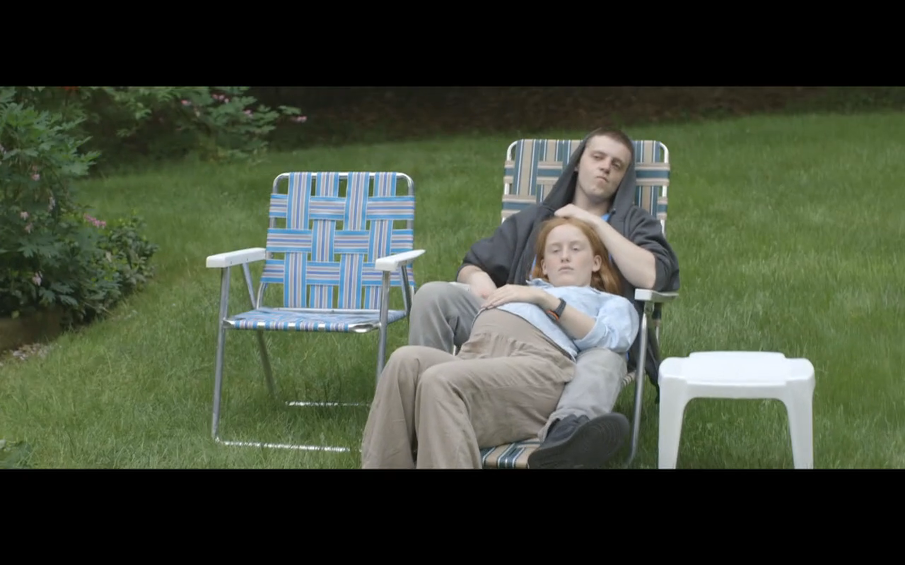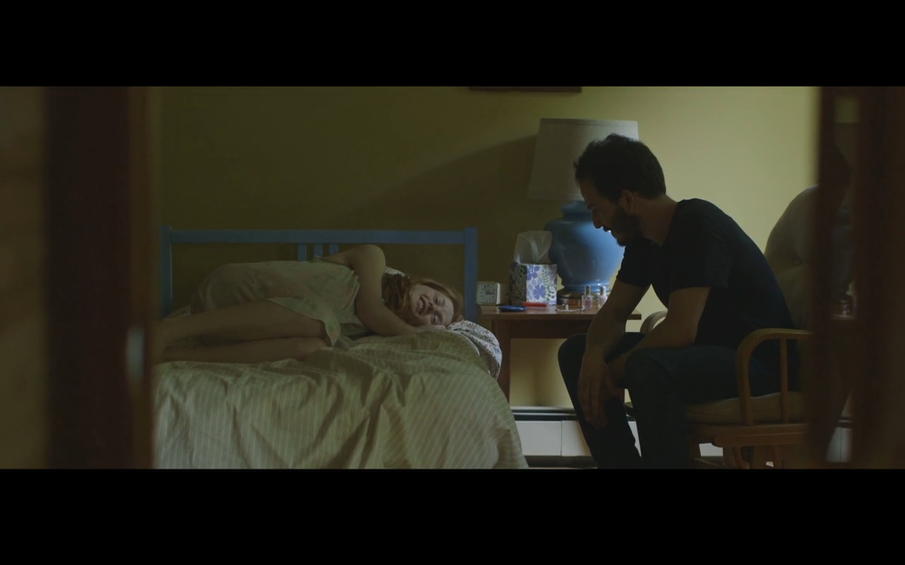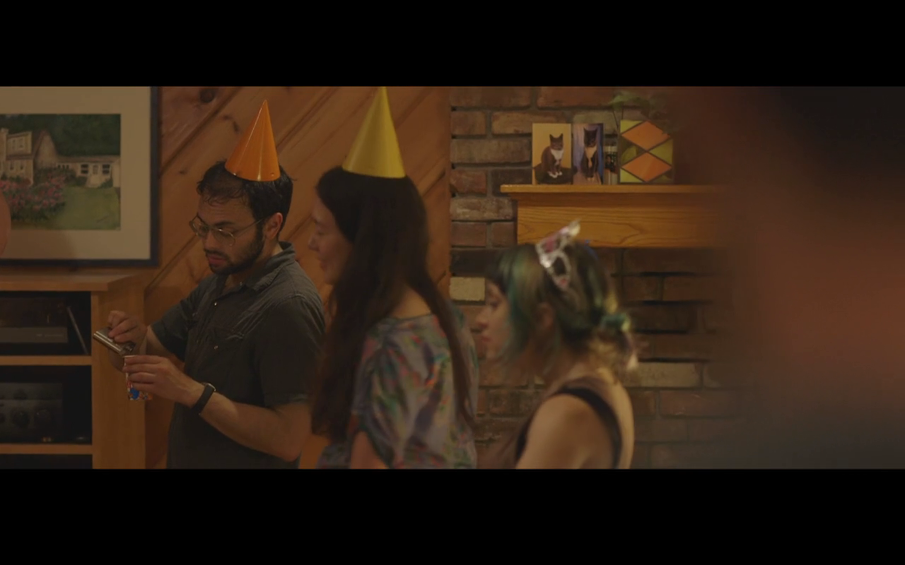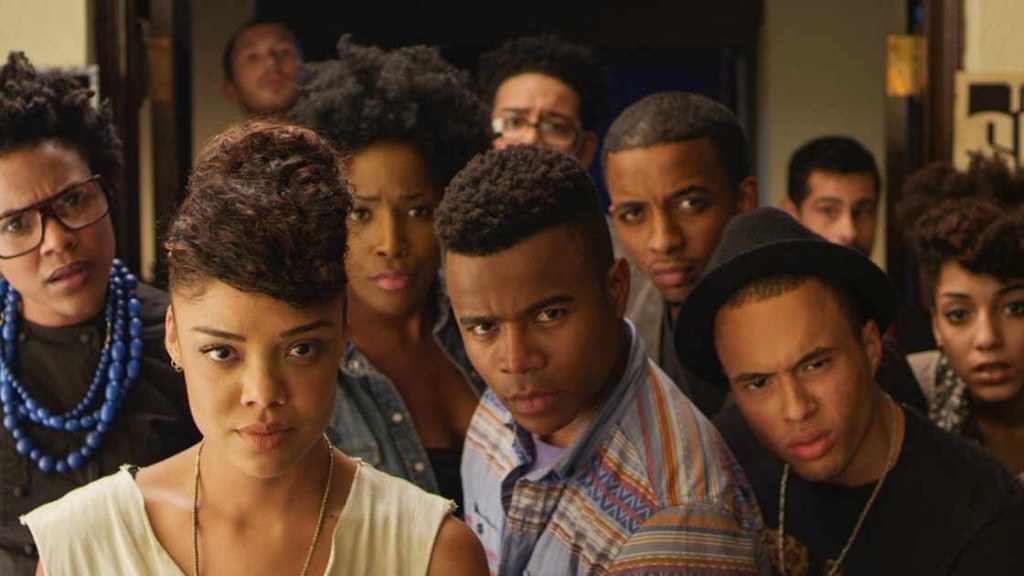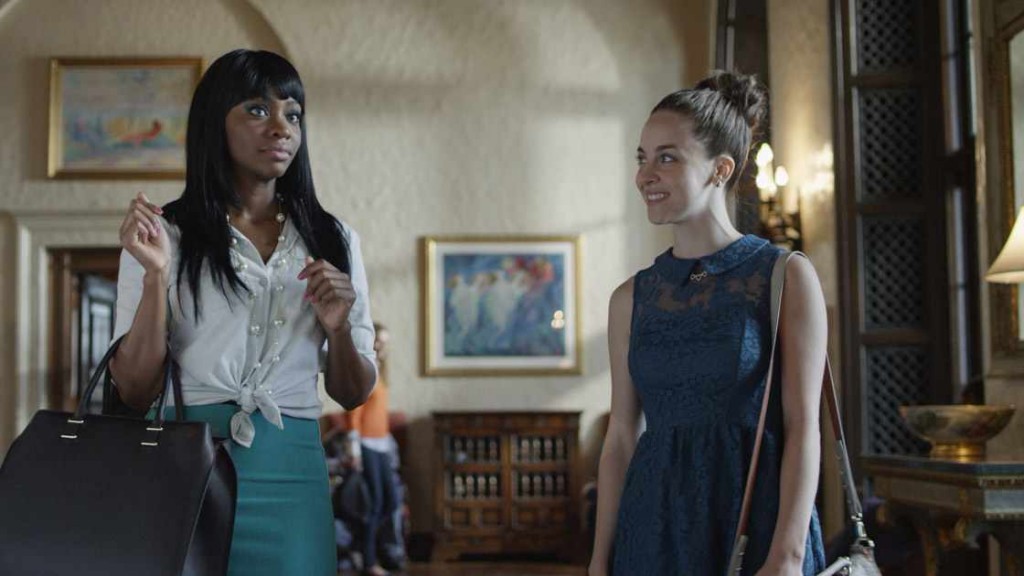The following is a slightly modified repost.
When Go Fish was released 20 years ago, a straight guy friend who was in his 50s (we had met at a former workplace) couldn’t understand why I liked the film. We usually had very similar tastes in movies: both of us had enjoyed watching Winona Ryder playing a slacker in Reality Bites and had shaken our heads over how overrated Kieslowski’s Blue was. I tried to explain to him why Fish was special: the women in it looked like, dressed like, talked like and even had similar haircuts to the queer women I knew. The writer/star and writer-director were out queer women and their film had a real release and real distribution, instead of just being relegated to festivals or one or two nights at the smallest independent theater in town, the way most other queer films–especially those made by and featuring women–had been. But all his life this guy had been seeing films about straight men, by straight men and starring straight men (or at least men who could convincingly pass as straight), so he couldn’t understand why I would make such a big deal of seeing on the big screen some part of my community recognizably reflected back to me.
Writer-director Justin Simien’s crowd-funded Dear White People, which opens in US theaters (with real distribution) this Friday, Oct. 17, feels like a similar breakthrough. The film follows four African American students at prestigious Winchester University: gay (though he says he doesn’t believe in “labels”) student newspaper reporter Lionel (Tyler James Williams); straight-arrow, high-achieving son of Winchester’s Dean, Troy (Brandon P Bell); ambitious aspiring reality TV star, Coco (Teyonah Parris: at first I didn’t recognize her in modern hair, dress and light contacts–she also plays Dawn on Mad Men); and Sam (short for Samantha) White (Tessa Thompson), the acid-tongued, outspoken college radio host of the title program, which includes proclamations like “Dear white people, breaking news: the amount of Black friends required to not seem racist has now been raised to two. Sorry, your weed man Tyrone does not count.”
The film’s tagline: “Being a Black face in a white place” is an issue sometimes brought up online (as in the viral “I Too Am Harvard” video) and elsewhere but pretty much never addressed in film: Black students navigating majority white campuses in which individuals, policy and curriculum are often either unfriendly toward or clueless about the needs of students of color. Winchester’s President wants to dismantle the all-Black dorm students gravitate to. He is either misreading the consolidation of Black students as “reverse racism” (Sam later explains to the Dean why there’s no such thing) or fears the Black students banding together will be too strong a foe for his administration.
Sam, although “political” had previously shown no taste for campus elected office but runs as a protest candidate for “head of house” against the incumbent, her ex-boyfriend Troy, who will not fight the administration decision to break up the house. To everyone’s surprise–including her own–Sam wins.
Because we’re not used to seeing films that feature more than one Black person (and often not any) in an environment full of both opportunity and microaggressions, we haven’t before observed the different approaches students (and others) take in walking this minefield. Confrontational Sam tells the campus “humor” magazine’s core of white, frat brothers (including the son of the University’s president), “On behalf of all the colored folks in the room let me apologize to all the better qualified white students whose places we’re taking up,” then throws them out of the house’s dining hall. Troy jokes and plays cards with the same group, hoping to earn a byline at the magazine: the president’s son Kurt (Kyle Gallner) brags it’s the main pipeline to Saturday Night Live’s writing staff (which makes “Winchester’s” parallels to Harvard more explicit–and is perhaps one way to understand some of the problems the real-life SNL has had in diversifying their cast of performers and writers).
Coco wants to use the fraternity and magazine to further her own goals, while the brothers use her inclusion to deflect charges of racism–and she doesn’t care what activists like Sam think of her affiliation. Conflict-averse Lionel just keeps moving–from the frat at the very beginning of the film to dorm after dorm hoping the next place he lives is the one where he isn’t the target for harassment: for his sexual orientation at the frat and for not being “Black” enough at Sam’s hall.
There’s more plot (so much more) but all of it is a fairly flimsy pretext for one-liners (many of which feel like they were gathered over a lifetime) and sketches like “The Tip Test” which begins “”Your waitress mistakes you for someone who looks like you–Black–who once ran up a $30 bill and left a dollar tip.”
Like Looking, White People also examines interracial relationships, and as in Looking the white people in those relationships don’t (with one notable exception) come off very well. But I was disappointed that the film didn’t explore the impunity with which racist (or even just microaggressive) white guys will sexually harass, demean and even assault women of color: the film’s main villain, Kurt (whose irredeemability is on the level of Joffrey in Game of Thrones) doesn’t lay a hand on (or even use any slurs to describe) Sam or Coco in spite of his deep hostility to the former and his proximity to the latter. With the barrage of rape threats outspoken women (especially women of color) continue to receive over social media, the film’s neglect to include that kind of backlash in Sam’s storyline makes it seem a little spotty. Tessa Thompson’s perpetually unimpressed but engaged face and clarion voice are the ideal vehicle for Sam’s pronouncements, but the script suddenly asking her, at the end, to become Julia Roberts in Notting Hill also fell flat–and is a missed opportunity to depict how activists need supportive relationships, even ones their peers might not approve of.
Coco though skillfully played by Parris (her skeptical double takes could populate an entire feature) also seems incomplete. The character is so calculating that only rarely, like at the climactic blackface party do we have a clue what she is really thinking and feeling. She’s also one of the few characters who doesn’t seem to come from an affluent or middle class background and has darker skin than the others, but the script barely addresses this disparity.
Even though Sam is presented as the main protagonist in the film, Simien is better at fleshing out his Black male characters. Nerdy Lionel with his notepad, passive demeanor, huge, messy afro, whom we see from the beginning (when we are introduced to all the different cliques of Black students at Winchester) as a misfit even among the other queer Black people, is a fully formed person and Williams plays him, including his transformation at the end, well. Simien is an out gay man and I’m probably not the only one who wondered how autobiographical Lionel is. Bell’s Troy at first seems like nothing more than a dapper A-student and class officer, but then we learn that he wants to deviate from his father’s carefully laid plans for him–and that in spite of his clean cut persona and protests to the contrary, he spends a lot of time smoking weed.
Dear White People cites as its influences both Spike Lee’s School Daze and National Lampoon’s Animal House, tackling a lot of thorny issues under the cover of its humor (not all of which is successful) and bringing to light scenes most audiences won’t have seen in movies before. The Independent Film Festival of Boston screenings where I saw White People were packed (as were its screenings at Sundance which were declared “one of the hottest tickets“): if its main release follows suit, many people will be going to and talking about this film. In one scene White People makes fun of the dearth of Black people in movies (one activist demands from the ticket seller at a movie house “I want my $15 back for Red Tails II.”) Perhaps the best thing Dear White People will do, like Go Fish before it, is to become a gateway for films and television in the same vein. In the two decades since Fish’s release series and films from queer women have become an indelible, if still small, part of the larger culture, from Ellen’s “Puppy Episode” to, for better or worse, The L Word–which the filmmakers of Fish had a hand in–and The Kids Are All Right to last year’s fantastic Concussion. Fish’s influence has spread so far that today 20-something queer women themselves, much like my straight friend back in the day, can’t understand why anyone made a fuss about the film in the first place.
[youtube_sc url=”https://www.youtube.com/watch?v=XwJhmqLU0so”]
___________________________________
Ren Jender is a queer writer-performer/producer putting a film together. Her writing. besides appearing every week on Bitch Flicks, has also been published in The Toast, RH Reality Check, xoJane and the Feminist Wire. You can follow her on Twitter @renjender.






